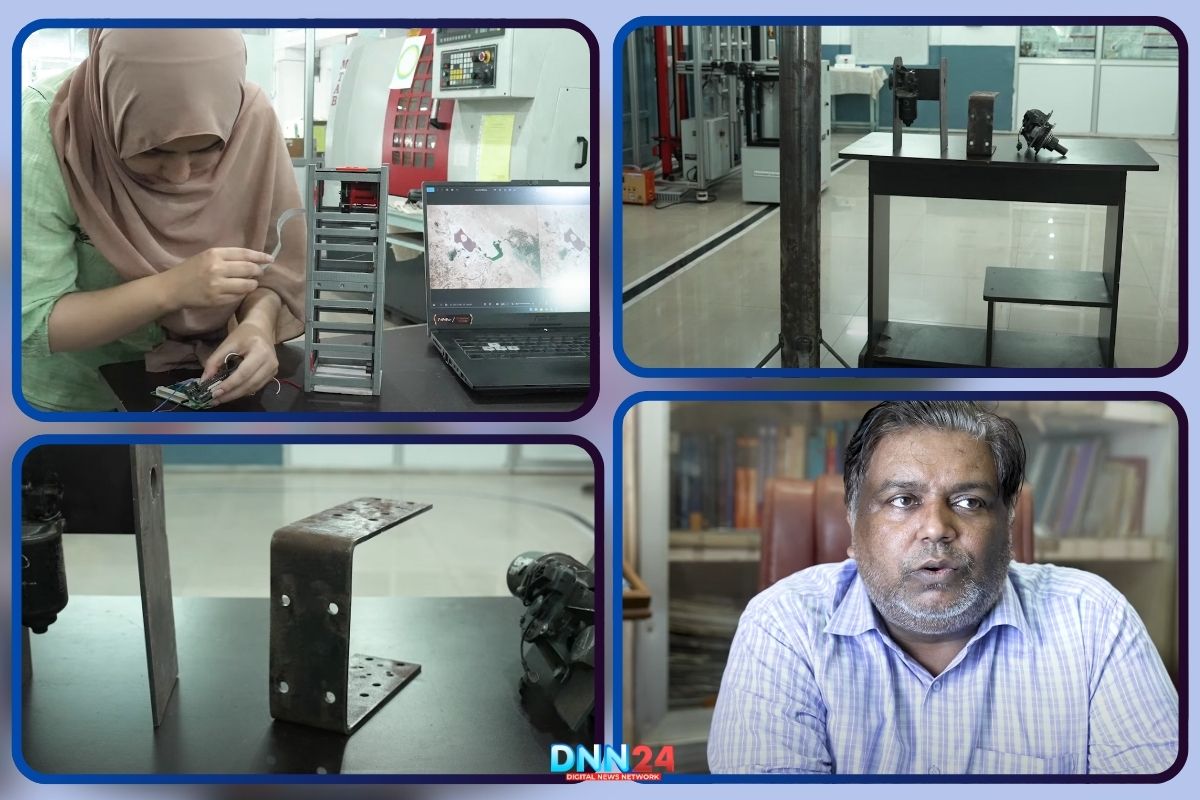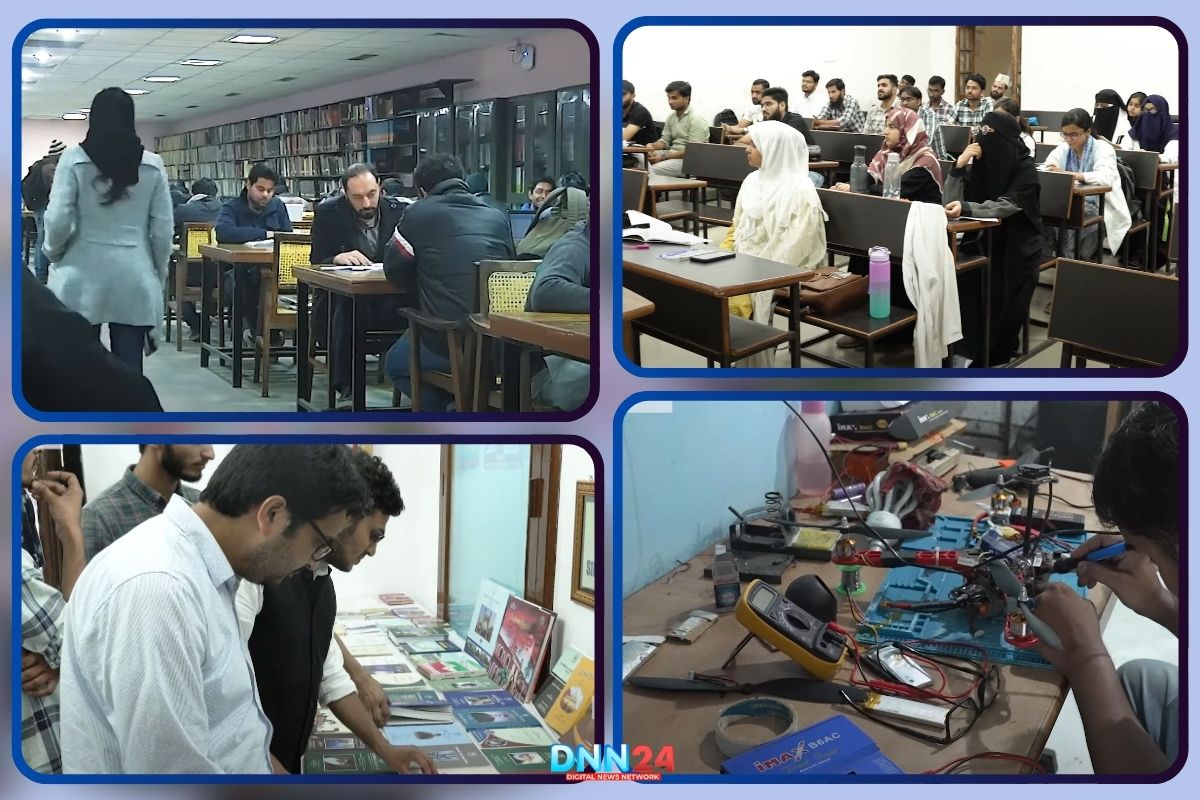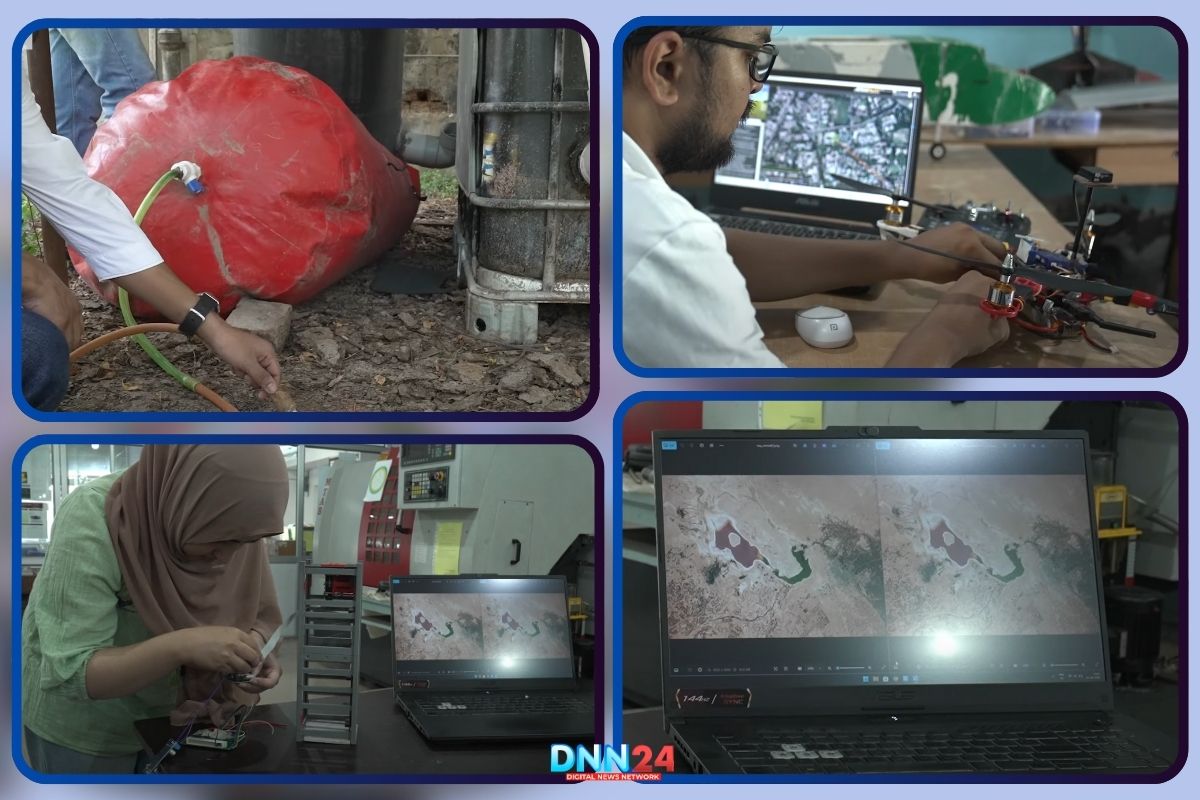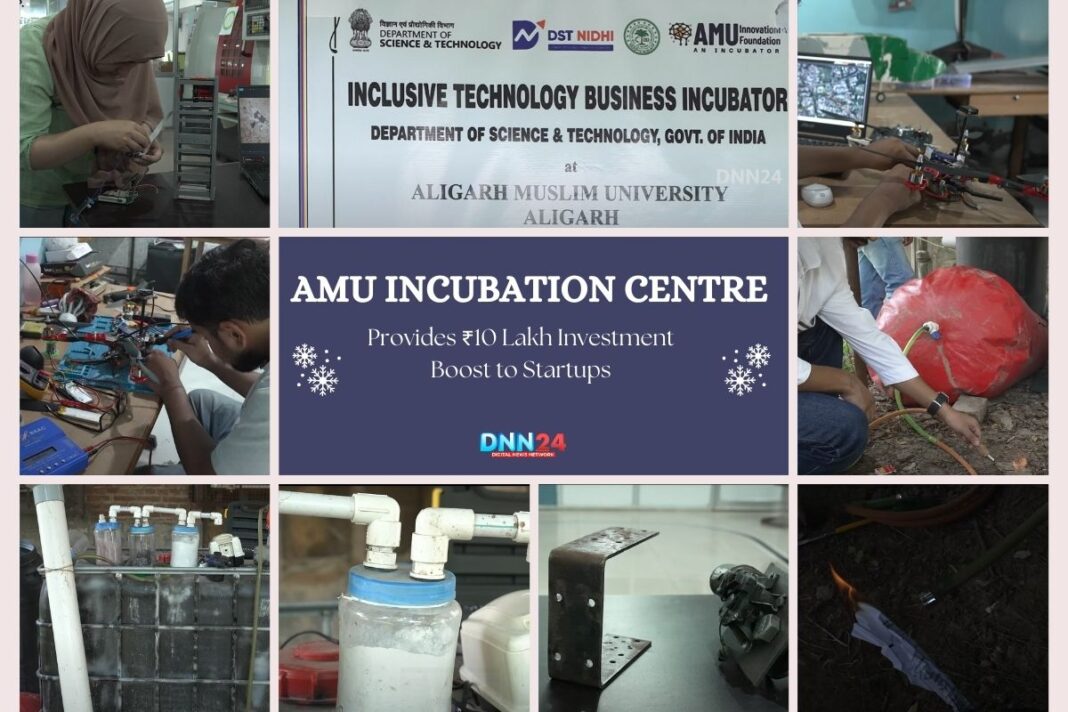Aligarh Muslim University (AMU) has completely transformed its identity from being just a centre of traditional education to becoming a powerhouse of technology and innovation. The University’s Incubation Centre is now offering startups an incredible opportunity to take flight and reach new heights in the business world. Through AMU Innovation Foundation, promising prototypes are receiving funding support of up to ₹10 lakh, creating a perfect bridge between academic learning and practical entrepreneurship.
This remarkable initiative is successfully connecting students with major government missions like Made in India and Startup India, proving that educational institutions can play a crucial role in building the nation’s startup ecosystem. Students are no longer confined to books and theoretical knowledge – they’re actively creating solutions for real-world problems. The university has become a breeding ground for young entrepreneurs who are working on cutting-edge technologies like green energy, biotechnology, and drone technology. This transformation shows how traditional institutions can adapt to modern times while maintaining their academic excellence and contributing to India’s technological advancement.
The Visionary Leader Behind AMU’s Startup Revolution
Professor Syed Fahad Anwar, who serves as the Director of AMU Innovation Foundation, is the mastermind behind this incredible transformation. As a Professor of Mechanical Engineering with specialisation in Fluid Mechanics, he brings both academic expertise and practical vision to the incubation centre. Three years ago, Professor Anwar and his dedicated team submitted a comprehensive project proposal to the Department of Science and Technology (DST). Their hard work paid off when they received a substantial grant of ₹5 crore, which became the foundation for establishing the AMU Innovation Foundation.

The centre operates through its official website amuif.co.in and focuses on four core areas that represent the future of technology: healthcare solutions, green energy innovations, nanomaterials research, and advanced simulations. What makes this incubation centre truly special is its inclusive approach – it welcomes not only AMU students, faculty, and alums but also extends its support to students from colleges around Aligarh. Professor Anwar’s vision goes beyond just providing facilities; his team offers complete hand-holding support, helping startups navigate the complex journey from prototype development to market entry, including connecting them with angel investors and venture capitalists.
The Game-Changing ₹1 Lakh Seed Funding Program
The most attractive feature of AMU’s incubation programme is undoubtedly the financial support system that removes one of the biggest barriers faced by young entrepreneurs. Every startup that successfully develops a working prototype receives ₹1 lakh as seed grant funding, providing crucial financial support during the early stages of business development. This isn’t just charity money – there’s a rigorous evaluation process to ensure that only deserving and viable companies receive this investment. The selection process involves a thorough assessment of the business idea, prototype functionality, market potential, and the team’s capability to execute their vision.
Currently, the incubation centre is nurturing nine promising startups, with the majority being student-led ventures that represent the fresh thinking and innovative approach of young minds. Some startups have also been established by AMU alums who returned to their alma mater to contribute to the innovation ecosystem. This seed funding serves as a crucial stepping stone, helping startups move from the concept stage to actual business operations. The financial support enables entrepreneurs to focus on product development and market research without worrying about immediate funding concerns, creating a conducive environment for innovation and creativity to flourish.

NextScope: Revolutionary Satellite Communication Technology
Among the most impressive startups emerging from AMU is NextScope Private Limited, led by Ulma from the Computer Engineering Department of ZHCET College. This innovative company is developing advanced payload boards for satellites and drones, with applications spanning across critical sectors like defence and agriculture. NextScope’s breakthrough technology centres around a novel algorithm that functions like a sophisticated brain, capable of compressing and transferring images with remarkable efficiency and speed. The system can compress a massive 12 MB image down to just 450 KB for transfer purposes, then seamlessly decompress it back to its original 12 MB size and quality without any visible degradation.
This technological achievement addresses one of the most challenging aspects of modern satellite and drone operations – the need for rapid image processing and transmission. The team has invested over two years in developing this memory-efficient solution, focusing particularly on speed optimisation since drones capture images at extremely high rates. Their algorithm can process images in under one second, which is crucial for real-time applications. Currently undergoing testing on satellite platforms, this versatile technology can be customised for various applications based on specific customer requirements, making it a valuable solution for the growing space technology sector.
Eco Sustainable Bharat: Fighting Climate Change with Biogas Innovation

Shadil Rahim, a Master’s student at AMU, has founded Eco Sustainable Bharat with a noble mission to combat global warming through sustainable energy solutions. As the CEO of this green startup, Shadil is developing innovative biogas technology that converts kitchen waste and organic materials into clean, eco-friendly fuel. This revolutionary process uses cow dung, grass, kitchen waste, and other organic materials to produce biogas that serves as an excellent alternative to LPG and CNG. The startup’s technology focuses on creating a completely organic and sustainable fuel source that’s not only environmentally friendly but also economically viable.
The production process begins with cow dung as the primary input, followed by a sophisticated filtration system that removes harmful elements like sulfur dioxide and carbon dioxide. This filtration is crucial because unfiltered gas contains pollutants that prevent proper combustion. The filtered gas produced by their system has unique safety features – it’s leak-proof and blast-resistant, requiring specific pressure conditions to ignite, unlike CNG, which can explode easily.
After two years of intensive development, the team has perfected the purification process, creating a system that can be scaled up for commercial production. The startup plans to bring this technology to market within the next 1-2 years, offering both household and commercial users a cheaper, safer, and completely organic alternative to fossil fuel-based gases.
Orbitalink: Bridging Earth and Space Through Ground Station Services
Asif Ali, a final-year Electrical Engineering student, leads another fascinating venture called Orbitalink Private Limited, which specialises in satellite communication and ground station services. This innovative company focuses on solving the complex challenge of maintaining communication with satellites once they’re launched into space. Their services include tracking satellite positions, downloading research data, and maintaining operational control over satellite systems through sophisticated ground station technology. Orbitalink provides both hardware solutions and comprehensive services, representing a complete package for satellite communication needs.
The development of their current prototype required three months of intensive work, with the main challenges being system design and procurement of specialised components, particularly high-torque motors required for antenna rotation and axis movement. Despite facing procurement difficulties, the team has managed to overcome obstacles with excellent support from AMU faculty and laboratory facilities. Their development process is methodical and thorough – they conduct detailed video analysis of every test flight from multiple angles, followed by comprehensive team discussions to identify areas for improvement. This systematic approach ensures continuous refinement of their technology and helps them maintain high standards of quality and reliability.

Government’s Make in India: Fueling University Innovation
The government’s support for university-based startups has been exceptional under the Make in India initiative, creating a favourable ecosystem for innovation and entrepreneurship. The Ministry of Science and Technology is actively funding incubation centres across educational institutions, demonstrating a strong commitment to fostering innovation. Through progressive schemes like NIDHI by DST, the government provides direct funding to students for their projects and prototypes, removing financial barriers that often prevent brilliant ideas from becoming reality. This comprehensive support system covers everything from initial concept development to market launch, creating a complete entrepreneurship pipeline.
Professor Anwar believes this government backing will significantly boost entrepreneurship levels and help universities establish robust innovation ecosystems. The students appreciate how this funding removes the traditional obstacles that young entrepreneurs face, allowing them to focus on innovation rather than worrying about finances. This strategic investment in university-based startups is crucial for building India’s manufacturing and production capabilities, helping the country become self-reliant in technology and innovation. The initiative represents a forward-thinking approach that recognises the potential of academic institutions in driving economic growth and technological advancement, creating a new generation of confident entrepreneurs ready to compete on the global stage.
Also Read: Gulzar: From Partition’s Shadows to Poetry’s Light
You can connect with DNN24 on Facebook, Twitter, and Instagram and subscribe to our YouTube channel.



